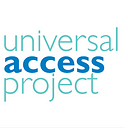The Decade of Action: Charting a Path Forward for Global Sexual and Reproductive Health and Rights
By Seema Jalan
One month into a new year, and a new decade, I find myself reflecting on the current state of global sexual and reproductive health and rights: Where have we come from? What challenges are we facing? And what is the path forward?
We are at a unique moment in time: We’ve just marked the 25th anniversary of the International Conference on Population and Development in Cairo, when for the first time the majority of the world’s governments answered the call of activists and put individual reproductive health and rights at the center of global development. We’re now entering the 25th anniversary year of the World Conference on Women in Beijing, when, again in response to calls to action from women globally, the world put forward what is considered the most progressive blueprint ever for advancing women’s rights. What the world committed to then, and what remains true today, is that women’s rights are human rights.
For years, women have led the organizing to get our issues on the global stage and it’s more urgent than ever that governments finally deliver on making these rights a reality. We now stand at the beginning of the “Decade of Action” — with just 10 years left before the 2030 deadline to achieve the Sustainable Development Goals the world agreed to in 2015. Five years out from this agreement, and just a decade to go, 2020 is a year we must shift our trajectory if we want to truly deliver for people and planet. As women, we are in the driver’s seat on delivering on these commitments: When we are healthy, empowered, and in charge of our lives, we can make progress on every single one of our global goals, from climate action to quality education to reducing poverty, and everything in between. Sexual and reproductive health and rights are core to this, and are especially critical for young people, who want and deserve to have agency over their own lives and become the next generation of leaders.
All of this is why for 50 years, with bipartisan support, the U.S. has been a leader in supporting international reproductive health and rights, a reflection of our American values of prosperity, security, and goodwill. But decisions made in just the past three years have reversed decades of progress.
Three years ago, the Trump Administration reinstated and massively expanded the Global Gag Rule, a harmful policy that prevents foreign non-governmental organizations from receiving U.S. global health funding if they provide information about, referrals to, or services for legal abortion, or advocate for legalized abortion, even with their own, non-U.S. funds. The disastrous effects of the policy are still bubbling up around the world, from Nepal to Kenya to Colombia and far beyond. The same year — and every year since — the Administration eliminated all funding for the UN Population Fund, or UNFPA, the UN agency dedicated to reproductive health, impacting the most vulnerable girls and women in the more than 150 countries UNFPA serves. We have also seen efforts each year to slash or zero out funding for international reproductive health and family planning in the federal budget, funding that provides more than 24 million women and couples who want it with contraception. On top of all this, the State Department even stripped out all mentions of sexual and reproductive health and rights in its annual Human Rights Report, a key tool used to hold countries to account for human rights abuses.
These decisions made right here in the U.S. reverberate around the globe. They impact women like Elvira in Guatemala, who learned from and now teaches in a peer mentorship program supported by UNFPA to educate indigenous girls about their health and rights; Or Melvine in Kenya, a nurse who has seen firsthand the dangers of unsafe abortion and will not sign on to the Global Gag Rule; Or Jacqueline in Uganda, who received and now counsels on and distributes contraception to women in her village who want it thanks to a program supported by USAID funding.
For better or worse, the actions of the U.S. government have an outsized impact on people’s lives around the world, and Elvira, Melvine, Jacqueline, and the communities they serve are caught in the crosshairs. None of us can afford to go backward. We as Americans have an opportunity in this new decade, this decade of action, to not only rebuild U.S. global leadership, but to make it stronger than ever. Our path forward is clear: We must begin by permanently ending the Global Gag Rule, reinstating full funding to UNFPA, and restoring our commitment to funding quality reproductive health and family planning programs. Only then can we pursue a world where girls and women everywhere are equal and free.
Learn more about the Universal Access Project and get involved at www.universalaccessproject.org.
